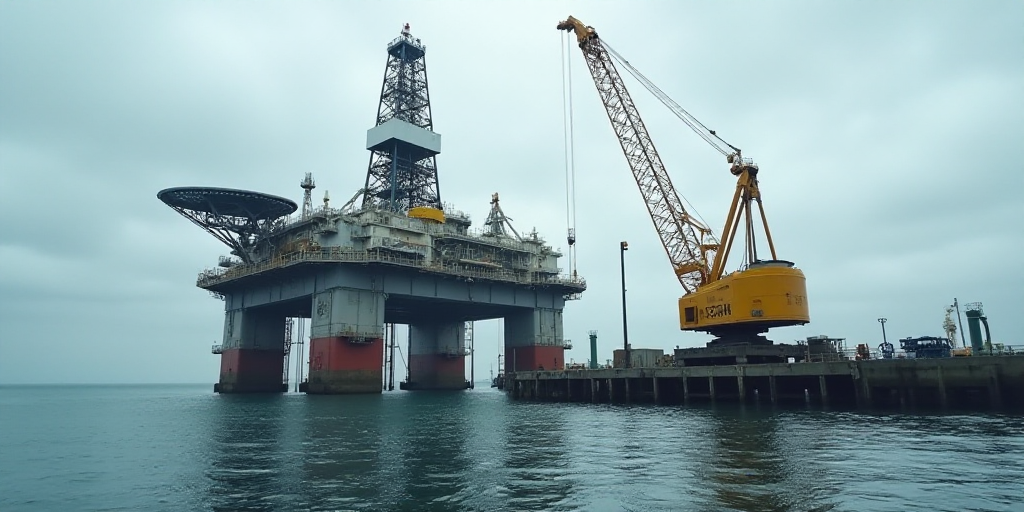Background on Colombia’s Oil Sector and Relevance
Colombia, a major oil producer in South America, has recently experienced a significant decline in its petroleum output. The country’s oil production reached its lowest levels since 2022, with March 2025 seeing a daily extraction of 747,900 barrels. This represents a yearly decrease of 4.1%, or approximately 31,700 barrels per day less than the previous year.
Impact of Strikes and Attacks
The Cámara Colombiana de Petróleo, Gas y Energía (Campetrol) reported that the decline is primarily due to strikes and attacks in various regions across Colombia. These disruptions have negatively affected the country’s oil production capabilities.
Decline in Gas Production
In addition to the oil production drop, Colombia also experienced a 17.9% annual decrease in commercially produced gas, equating to around 179,000 million cubic meters per day. This decline further impacts the nation’s energy sector.
Economic Impact on the Oil Sector
The Petroleum Sector’s Gross Domestic Product (PIB sectorial) contracted by 5%, according to data from the Colombian National Administrative Department of Statistics (DANE). This contraction includes activities related to oil and gas extraction, as well as refining.
Decrease in Extraction and Refining Activities
Annual reductions were also observed in oil and gas extraction (3.7%) and related activities such as oil refining, distillation, and fuel blending (9.7%). These declines have contributed to the overall decrease in Colombia’s petroleum output.
Export Decline
The Colombian oil sector’s exports have also suffered, with a 5.4% decrease in the first quarter of 2025 compared to the same period in 2024. This translates to a loss of USD 190 million, totaling USD 3,350 million for Q1 2025.
Ecopetrol’s New Water Treatment System
In a positive development, Ecopetrol, Colombia’s state-owned oil company, has implemented a new water treatment system in the Meta region. This innovative approach aims to boost crude oil production by over 3,000 barrels daily in the Meta field. The Sistema de Tratamiento de Agua de Producción (Production Water Treatment System) has a daily capacity of 120,000 barrels and complements seven existing water treatment units with a total capacity of two million barrels per day.
Benefits and Strategy
Ecopetrol’s new system focuses on water reutilization as a strategy to minimize freshwater extraction and wastewater discharge. This initiative not only enhances operational efficiency but also ensures the continuity of supply in ongoing and future projects within Colombia’s petroleum fields.
Key Questions and Answers
- What caused the decline in Colombia’s oil production? The primary reasons for the decrease are strikes and attacks in various regions across Colombia, as reported by Campetrol.
- How much has oil production dropped? Colombia’s oil production fell by 4.1% annually, equating to approximately 31,700 barrels per day.
- What is the status of gas production in Colombia? Gas production has experienced a 17.9% annual decrease, with daily output now at around 821,000 million cubic meters.
- How has the oil sector’s GDP been affected? The PIB sectorial, which includes extraction and refining activities, contracted by 5%.
- What is Ecopetrol’s new water treatment system and how will it impact production? Ecopetrol has introduced a new water treatment system in the Meta region, which is expected to increase crude oil production by over 3,000 barrels daily. The system focuses on water reutilization to minimize freshwater extraction and wastewater discharge.






